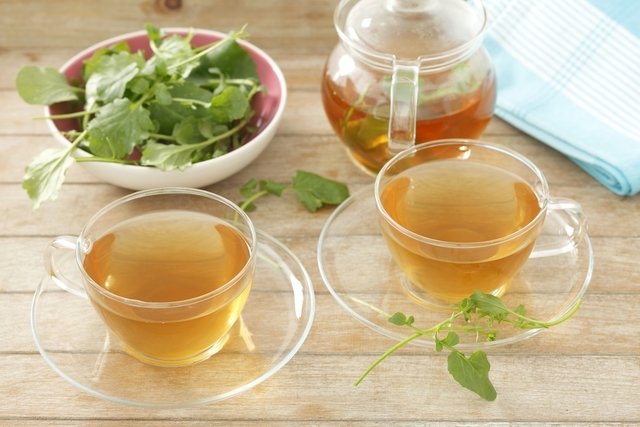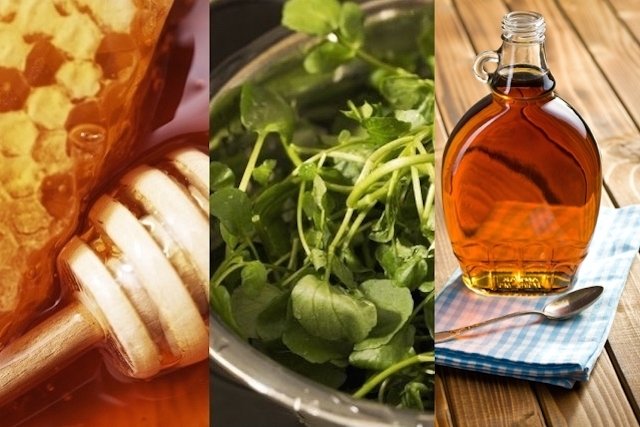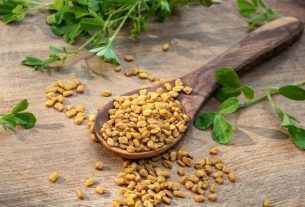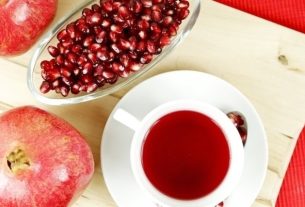A good way to combat coughs, flu and colds is to use watercress to prepare tea or syrup, as it has expectorant, decongestant and antitussive medicinal properties, due to the mustard oil present in its composition, as well as vitamins C, A , iron and potassium, which are important for strengthening the immune system.
Furthermore, watercress has a substance called gluconasturcoside, which works to combat bacteria that cause infections in the body, but does not affect the intestinal flora, keeping the digestive system healthy.
In the case of children and pregnant women, you should first talk to your doctor before using this home remedy. Furthermore, if the cough does not improve or is accompanied by other symptoms, such as fever, malaise, green phlegm or shortness of breath, for example, it is important to consult a general practitioner or pulmonologist, so that the cause can be identified and, if necessary, initiate the most appropriate treatment. See the main causes of coughing with phlegm.

To use watercress to combat coughs, it must be used fresh, as the dehydrated form loses its medicinal properties.
1. Watercress tea
Watercress tea can be consumed 2 to 3 times a day, preferably warm, to also help eliminate secretions from the respiratory tract.
Ingredients
- ½ cup of chopped watercress leaves and stems;
- 150 mL of water;
- 1 tablespoon of honey (optional).
Preparation mode
Put the water on to heat and when it boils, turn off the heat. Add the watercress and cover, letting the mixture rest for about 5 to 10 minutes. Strain, sweeten with honey and drink warm. See also how to use thyme to combat coughs and bronchitis.
In the case of people allergic to honey, propolis or pollen, honey should not be added to the tea.
2. Watercress syrup with honey
Watercress syrup with honey is a good option to combat coughs, as in addition to the medicinal properties of watercress, honey helps to reduce inflammation, lubricate the throat, relieve coughs and phlegm.
Ingredients
- 1 bunch of washed watercress leaves and stems;
- 1 cup of water;
- 1 cup of honey tea.
Preparation mode
Blend 1 bunch of fresh watercress in a blender, like water. Then place it in a pan and add the honey. Bring the mixture to a simmer until it thickens and acquires a viscous consistency. Turn off the heat, and place the syrup in a clean, dry glass jar. It is recommended to take 1 tablespoon of this syrup, up to 3 times a day.
To properly sanitize the glass bottle and avoid contamination of the syrup by microorganisms that cause it to spoil quickly, you must leave the bottle in boiling water for 5 minutes, leaving it to dry naturally with the mouth facing downwards on a cloth. clean.
As it contains honey, this syrup should not be used by people who are allergic to honey, propolis or pollen. In this case, you can replace the honey with 85 g of brown sugar.
3. Watercress and pineapple syrup
Watercress and pineapple syrup, in addition to having the expectorant and decongestant substances of watercress, also contains bromelain, which is a substance present in pineapple, with mucolytic properties, which help dissolve phlegm, relieving coughs.
Ingredients
- 200g de nabo;
- 1/3 of the chopped watercress sauce;
- 1/2 pineapple cut into slices;
- 2 chopped beets;
- 600 mL of water;
- 1/2 cup of honey.
Preparation mode
Blend all the ingredients in a blender and then cook the mixture over low heat for 40 minutes. Wait for it to cool, strain, add 1/2 cup of honey and mix well. Take 1 tablespoon of this syrup 3 times a day. For children, the measure should be 1 teaspoon of coffee, 3 times a day.
This syrup should not be used by pregnant women or people allergic to honey, propolis or pollen.
Bibliography
- PINELA, J.; et al. Nutritional Composition and Antioxidant Properties of Fruits and Vegetables – Chapter 12 – Watercress. Elsevier Inc, 2020. 197-219.
- COSTA, EA Nutrition & Phytotherapy – Alternative treatment through plants. 2nd ed. Brazil: Vozes Editora, 2011. 25-27.
- KOKHDAN, PE; et al. A Narrative Review on Therapeutic Potentials of Watercress in Human Disorders. Evidence-Based Complementary and Alternative Medicine. 1-13, 2021
- SHAKERINASAB, N.; et al. The Hydroalcoholic Extract of Nasturtium officinale Reduces Lung Inflammation and Oxidative Stress in an Ovalbumin-Induced Rat Model of Asthma. Evid Based Complement Alternat Med. 2022. 5319237, 2022

Sign up for our newsletter and stay up to date with exclusive news
that can transform your routine!
Warning: Undefined array key "title" in /home/storelat/public_html/wp-content/plugins/link-whisper-premium/templates/frontend/related-posts.php on line 12
Warning: Undefined array key "title_tag" in /home/storelat/public_html/wp-content/plugins/link-whisper-premium/templates/frontend/related-posts.php on line 13




